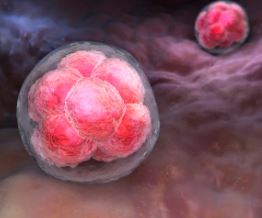Implantation failures occur when a healthy embryo, after being transferred to the uterus, fails to implant in the endometrium or inner layer of the uterus. This phenomenon can be frustrating and discouraging, especially for couples who have placed high hopes in fertility treatments such as In Vitro Fertilization (IVF).
Why it happens?
Implantation is a delicate and critical process in early pregnancy. It is the moment when the embryo, already fertilized and developing, adheres to the endometrium, the inner layer of the uterus that has been prepared to receive it. Although it may seem like a simple process, the reality is that implantation involves a complex interaction of hormonal, cellular and molecular factors, where any imbalance or anomaly can result in implantation failure.

Implantation can fail for a variety of reasons, and is often the result of a combination of factors from both the embryo and the uterus. Some of these factors include:
- Embryo quality: Although the embryo appears healthy, it may have genetic anomalies that prevent implantation.
- Endometrial health: An endometrium that is not receptive enough or has conditions such as endometriosis can make implantation difficult.
- Immune problems: In some cases, the woman’s immune system may reject the embryo, preventing it from implanting.
- Coagulation problems: Some clotting disorders can affect blood flow to the uterus, impacting implantation.
¿Cómo ayudamos en Ingenes?
En Ingenes, somos plenamente conscientes de los retos que los fallos de implantación representan para nuestros pacientes. Por eso, ofrecemos un enfoque integral y personalizado para abordar este problema:
- Comprehensive evaluation: We perform detailed evaluations to identify possible causes of implantation failure, including genetic analysis of the embryos, endometrial evaluations, and immunological tests.
- Personalized treatments: Based on the results of the evaluations, we adapt the treatments to the specific needs of each patient. This may include embryo selection through Preimplantation Genetic Diagnosis (PGD), treatments to improve endometrial receptivity, and immunological therapies.
- Emotional support: We understand the emotional impact that implantation failures can have on our patients and their partners. We offer psychological support to help them manage these emotions and move forward.

What comes next?
After experiencing implantation failures, it is important not to lose hope. With the right approach and support, many couples manage to overcome this obstacle. At Ingenes, we are committed to accompanying you every step of this path, exploring all the options available to help you achieve your dream of having a baby at home.
Although implantation failure may seem like an insurmountable obstacle, Ingenes’ comprehensive, evidence-based approach offers hope to many couples. Combining advanced medical science with compassionate care, we are dedicated to providing personalized solutions to overcome this and other challenges on the path to conception.
This comprehensive and compassionate approach is what sets us apart, ensuring that each patient receives not only the best medical treatment possible, but also the support and guidance needed to navigate this complex journey in search of your baby. At Ingenes, your dream of starting a family is what drives us every day.

